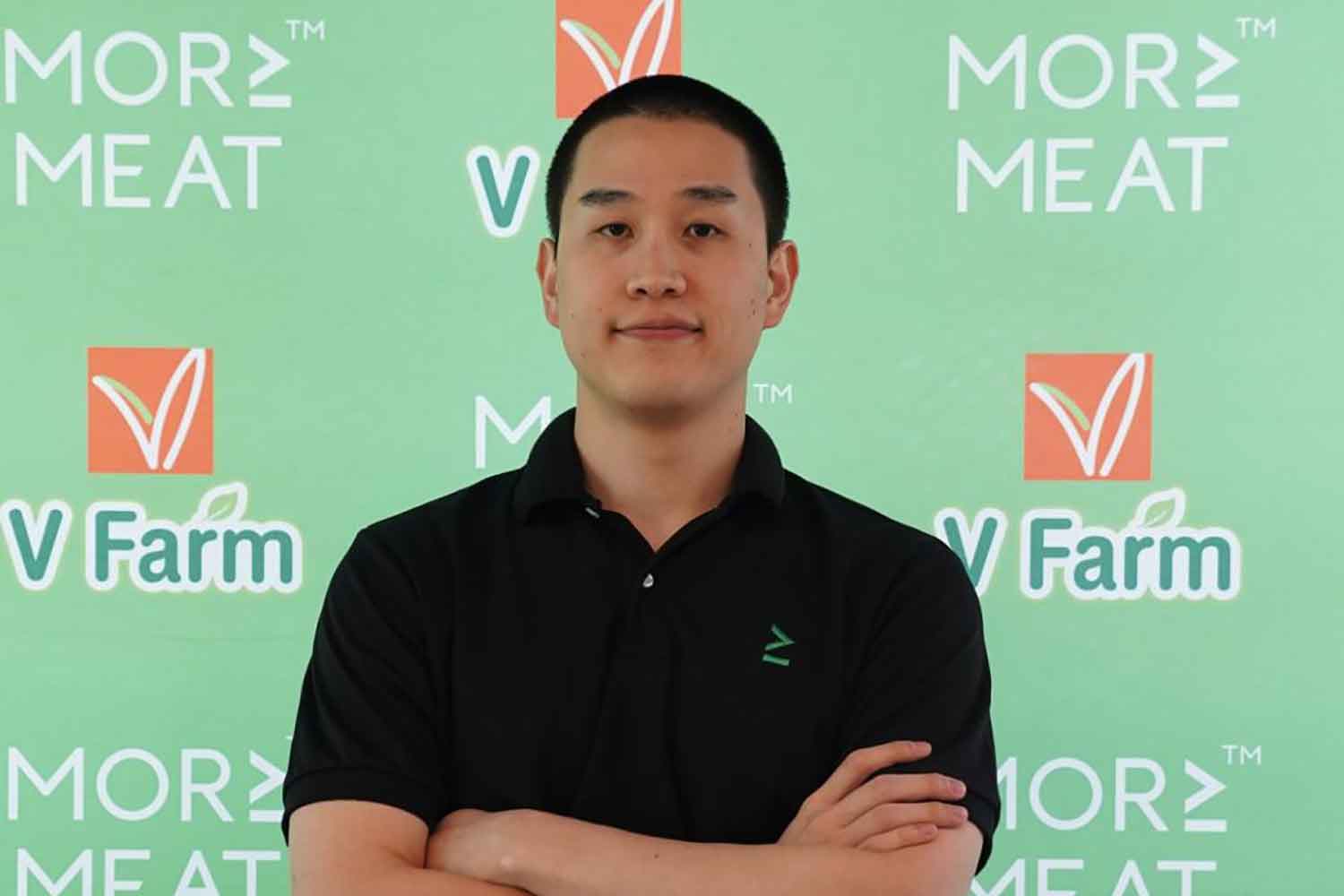
Academics and the private sector are embracing alternative meat solutions to help mitigate the meat industry's impacts on health and the environment.
With the boom in the plant-based meat market in recent years, Thai consumers are now accessing alternative sources of protein that promise lower environmental impacts and a boon to their own health.
Worldwide, alternative meat is a fast-growing sector which promises to revolutionise the global food industry.
The alternative meat arena
With the flourishing plant-based food market in Thailand, business operators large and small are joining the alternative meat sector.
Many start-ups have entered the business, not just big corporates. One is Vorakan Tanachotevorapong, founder of More Meat, which makes Thai plant-based meat with mushroom as its main raw material.
Mr Vorakan caught the rising alternative meat trend from early on and jumped into this business as a plant-based food importer in 2017 before opening his own plant-based food company under the brand More Meat two years later.
"I noticed people are more health conscious. They are seeking a nutritious diet for maintaining a healthy lifestyle. So, meat substitutes from plants are an ideal product for these consumers, because it has high protein similar to meat, but with zero cholesterol and low fat," he said.
Plant-based meat also appeals to environmentally conscious consumers, as production of plant-based meat requires less land and resources compared to conventional meat, while it also having lower impacts on the environment.
He said another major reason for opening his own start-up plant-based meat brand was is because he wants to support local farmers and promote sustainability in the food system.
"I found that imported plant-based products are not exactly healthy due to their high sodium content. They are also made mainly from soy, which is not a sustainable raw material, as we need to import soy from aboard," he said.
"Therefore, we choose locally farmed spiltgill mushroom (Schizophyllum commune, or hed khraeng in Thai) from Songkhla province as the main ingredient for our products, because its texture closely resembles pork and it also has high protein and other nutrients."
Using locally farmed spiltgill mushroom also benefits local farmers and the company economically, as they now have a secure market to sell their mushrooms at a fair price, while the company also gains high quality raw materials for its products.
Mr Vorakan said More Meat's plant-based meat created from spiltgill mushroom is popular with consumers.
The company is also researching the potential for making plant-based meat from other domestic crops as well as developing new products that have a different taste and texture.
"Since Thailand's plant-based food market has been growing so fast and more business operators are joining the competition, we have to stay alert to stay ahead in an increasingly competitive market," he said.
"Thailand has a high diversity of food crops and we can turn that to our advantage in research and development of new plant-based meat products. We also plan ahead to export our products to other countries."
Asked about plant-based meat's relatively high price compared to conventional meat, he said he has no intention to cut prices to compete with other meat products.
The current price is fair to both consumers and the company, he said, and he would not want to cut farmer earnings by paying less for his materials.
Future innovation
Even though all alternative meat products sold in Thailand today are plant-based meat, another kind of alternative meat product is poised to enter the market: cultivated, or lab-grown meat.
As its name suggests, cultivated meat is an emerging food innovation that produces slaughter-free meat protein from artificially grown animal tissues in the lab.
Three research teams from the Veterinary Stem Cell and Bioengineering Innovation Center of Chulalongkorn University, SPACE-F Global Food Tech Incubator & Accelerator Program led by Mahidol University, and Charoen Pokphand Foods Pcl, are developing cultivated meat products.
According to Dr Chenphop Sawangmake, head of the Veterinary Stem Cell and Bioengineering Innovation Center, the principle of this technology is to mimic the normal cells and muscle growth of the living organism.
Scientists gather stem cells from the animal and grow the meat from a single stem cell in the laboratory.
Lab-grown meat is cultivated in a warm, sterile vessel with a solution called a growth medium, containing nutrients including salts, proteins and carbohydrates. Lab-grown meat is actually real meat, but does not require the slaughter of animals, so it is sometimes considered another acceptable choice of alternative protein.
Dr Chenphop said this technique of meat rearing is done in a closed laboratory, so it is better for the environment and consumer health compared to conventional meat from industrial farms.
"Since we do not have to raise livestock for their meat and instead directly grow meat from stem cells, this technology allows us to produce meat with less land and water use and we can also avoid high environmental footprints from livestock farming," he said.
Industrial livestock farming leaves the biggest impact on the food production system, as the meat industry's high demand for land has already led to over 80% of deforestation globally, according to Greenpeace.
Pollution from livestock farming causes environmental problems, as waste from livestock farms contaminates rivers and coastal waters with nitrogen and phosphorus pollution, while climate impacts from the sector are also enormous, as the meat industry accounts for a quarter of global greenhouse gas emissions.
According to the Food and Agriculture Organization, the global livestock industry emits around 7.1 gigatonnes of Co2 annually, equivalent to emissions from all the world's cars, trucks and airplanes combined.
Dr Chenphop said the meat cultivation technique can also eliminate the risks of new infectious diseases and antibiotic resistance from meat production. "With this technology we can also genetically modify the meat to have more nutrients or include special characteristics for consumption," he added.








